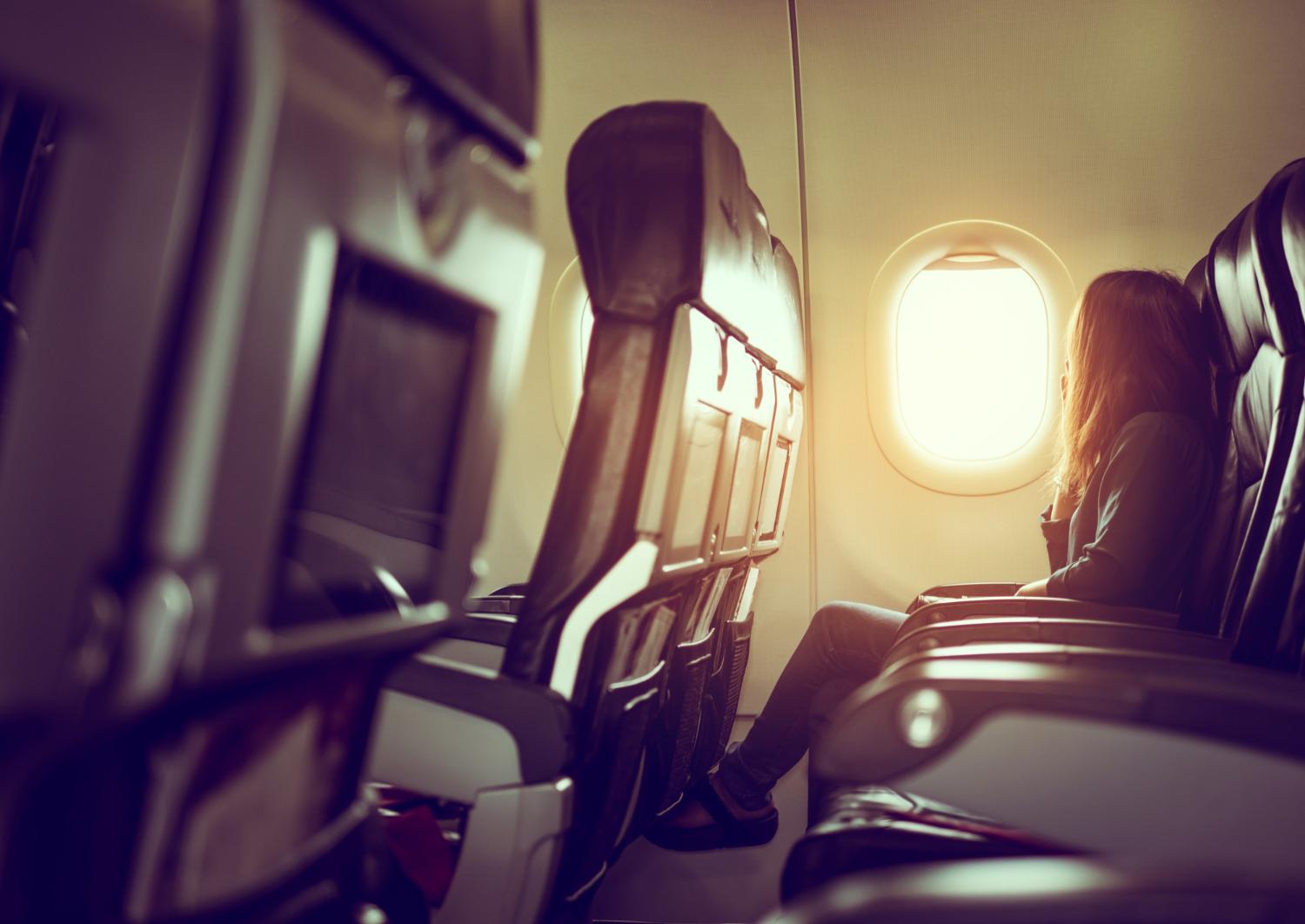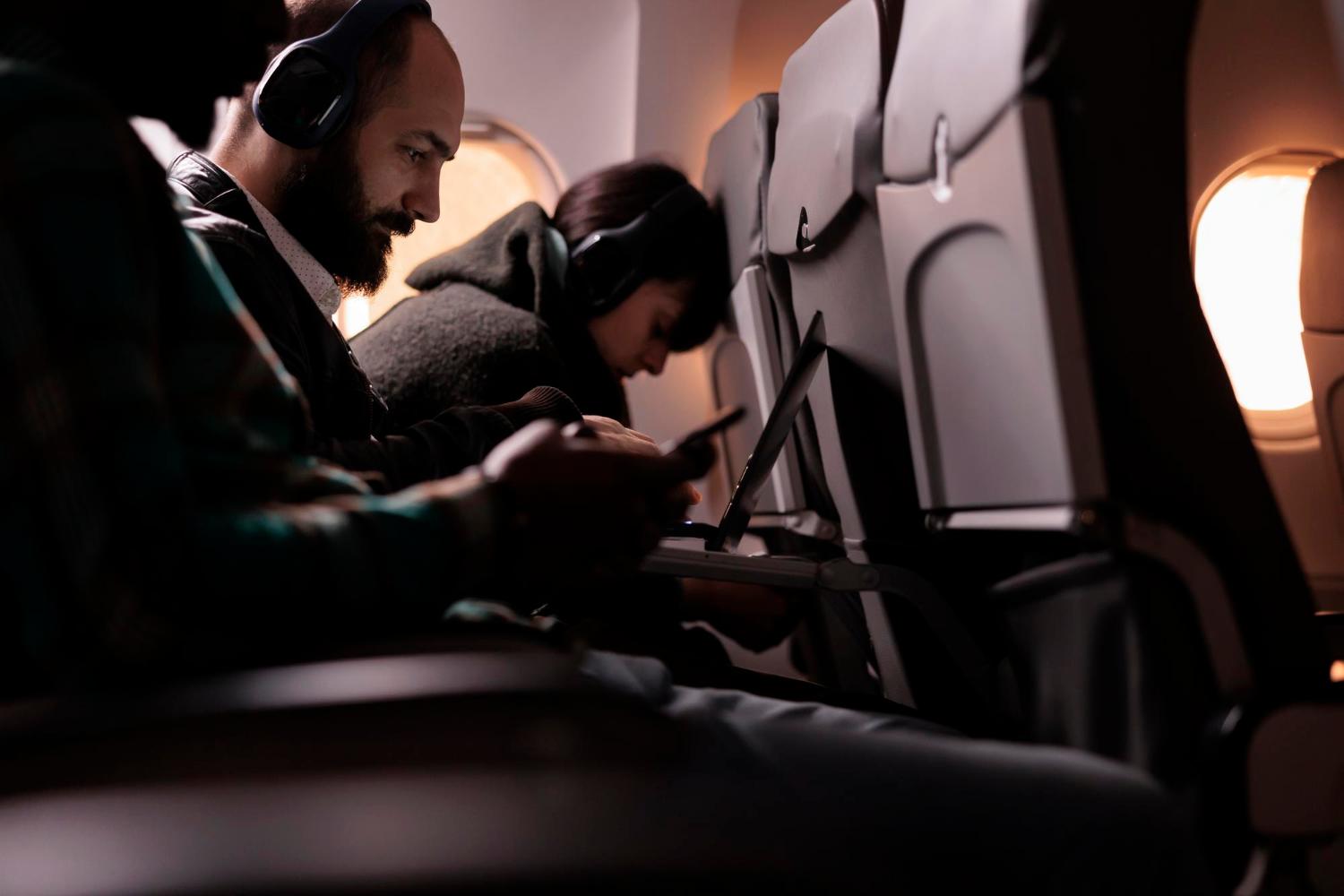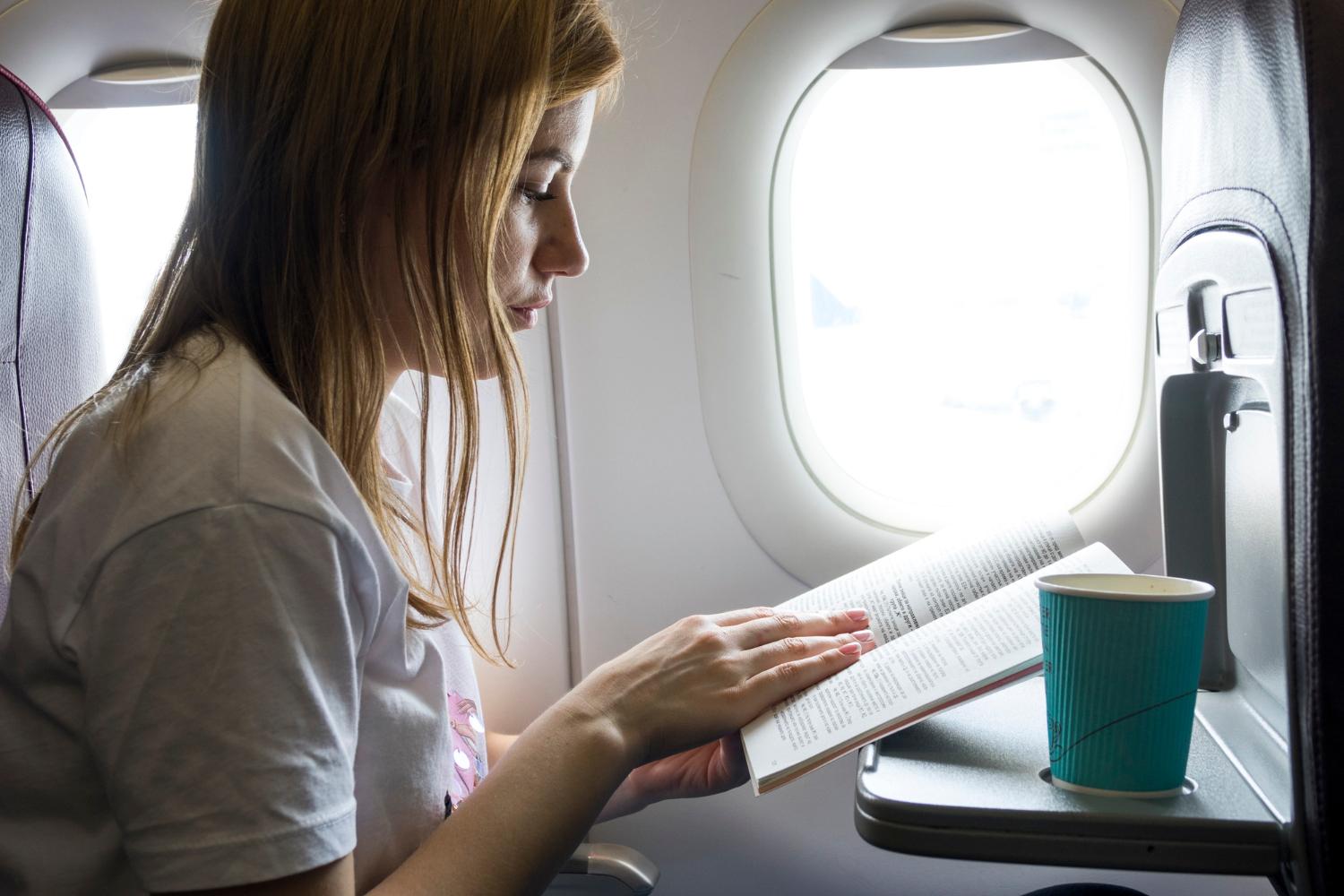If only we could teleport to our destinations instead of having to sit on long-haul flights of over 8 hours, right?
But that is not possible, so most of us just resolve to sleep through the flight.
However, taking a nap on a plane is only easier said than done.
The noisy cabin, cramped seats, bright cabin lights, and constant interruptions from announcements and fellow passengers make it hard to find a peaceful slumber. Not unless you are a first-class passenger or just have a superpower to sleep through anything.
Well, to make your next flight a breeze, we have compiled our top 20 secret tips for sleeping on a plane in this guide. Take a look.

1. Book the right seat
Always aim for a window seat when you can. It not only allows you to control the light coming in from outside but also provides a bit of extra wall to lean against. Avoid seats near the bathrooms or galley to escape frequent foot traffic and noise.
2. Try changing your sleep schedule days before your flight
Start tweaking your sleep routine a few days before your flight to sync up with your destination’s time zone. This gradual change can help minimize jet lag and make it easier to fall asleep on the plane when you are supposed to be sleeping.
3. Travel during night time
Booking your flight closer to when you normally sleep will help maintain your regular sleep patterns, making it easier to fall asleep. Planes are also usually quieter at night as you and other passengers are already exhausted. This makes it easier to rest without disturbances.
4. Carry a light-blocking, comfortable eye mask
A high-quality eye mask can be your best friend on a bright plane. It helps create a dark, cosy environment that signals your brain it's time to sleep, even when overhead lights or screens are on.
5. Invest in a comfortable and cosy travel pillow
These days, most international flights provide a pillow. However, you are most likely to sleep much better with a pillow chosen for your comfort. Look for one that supports your neck in a natural position. This reduces strain and helps you sleep comfortably without worrying about waking up with a stiff neck.
A cosy and comfortable travel pillow offers the right support for your neck and head.
6. Carry a support pillow for your back
Don’t forget a support pillow to ease back pain and improve your seat comfort. Maintaining proper spine alignment can prevent discomfort and make it easier to relax and fall asleep.
7. Adjust your seats if possible
Choosing a seat with legroom could come in handy too. However, this might only be possible for some due to the availability of limited seats and high additional costs.
If people seated behind you are comfortable, you can recline or adjust your seat to a sleep-friendly angle. A slight recline can make a big difference in your comfort level, and allow you to relax and drift off into a peaceful sleep.
8. Avoid alcohol
People often think that consuming alcohol could help them feel relaxed and go to sleep quickly. However, overindulging in these drinks can disrupt your sleep mid-flight. They reduce sleep quality and can lead to frequent awakenings.
9. Say no to caffeine
It is a well-known fact that caffeinated drinks disrupt sleep patterns. So if you are looking forward to catching some sleep on your flight, avoid caffeine completely on the day of your flight. Caffeine can stay in your system for several hours, so it's best to skip it and instead opt for a herbal tea before your flight. This can actually help you relax.
10. Choose what you are eating wisely
Choose light, non-greasy foods that won’t upset your stomach or keep you awake. Eating a heavy meal can lead to discomfort and indigestion, which can make sleeping more challenging.
Carb-heavy or spicy meals can also lead to bloating, making it difficult to sit or sleep in one position for longer periods. Stick to simple, mild foods for a smoother flight.
11. Wear comfortable clothing
If you are getting on a long-distance flight, skip your usual stylish airport outfit and dress comfortably in loose, breathable fabrics to feel more at ease. Comfortable clothing can make a significant difference in your ability to relax and settle into a good sleep position without feeling restricted.
12. Wear comfortable shoes
Along with comfortable clothing, make sure to wear comfortable shoes too. Opt for shoes that can be easily slipped on and off. Comfortable shoes not only make it easier to get through security but also help if you need to move, turn, or adjust yourself during the flight.
13. Wear sleep socks
Carry a pair of soft, warm socks to change into once you board. Keeping your feet warm can help regulate your overall body temperature and make it easier to fall asleep.
14. Tune out by wearing noise-cancelling earphones
Invest in a high-quality noise-cancelling earphone to block out the engine noise and chatter. These help create a quiet, personal space to relax.

15. Unwind with mindfulness meditation
Meditation has been the answer to all stressful situations, including travel stress. Focus on your breathing during the flight or practice some meditative stretches before the flight to relieve stress and go into a restful mood. Mindful meditation can help calm your mind, reduce flight anxiety, and set the stage for good sleep.
16. Try lavender aromatherapy
Many people might find the idea of popping a sleeping aid more fruitful, but in the long run, these could be damaging. Instead, you can try calming scents like lavender to make your nervous system more peaceful.
Bring a small bottle of lavender oil or a lavender-infused sachet. The scent is known for its relaxing properties and can help soothe your nerves and promote sleep.
17. Stay hydrated
Planes are known for causing dryness in the nose and mouth. This can lead to dehydration, which might cause headaches. Keep sipping little gulps of water to keep your system well-hydrated. Staying hydrated also helps prevent fatigue and jet lag. However, avoid drinking too much right before you try to sleep to minimize bathroom trips.
18. Read to relax
Some people have the habit of reading before their usual bedtime routine. If this is you, reading might also help during your flight. Try reading to relax and trick your mind into thinking you are following your usual routine.

19. Download a sleep app
There are many guided meditation apps available nowadays that can help you create a mindful and calming sleep environment. You can easily download a sleep app that offers calming sounds or guided meditations, to help you relax and fall asleep with ease.
20. Don't force yourself too hard
Trying too hard could lead to frustration and restlessness. If you cannot sleep, try to keep yourself busy with other mind-occupying activities like listening to calm music, audiobooks, and podcasts. Try to relax and rest your body as much as possible, even if sleep eludes you.
If you want the latest information on the best Hotel Executive Club Lounges, Hotel Kids Clubs and other travel information, be sure to sign up for our free newsletter full of tips and great travel ideas.